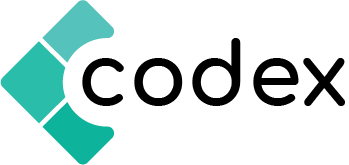The Future of Learning in Nigeria: Learning Design & STEM
The world is currently witnessing the 4 th industrial revolution. With such immersion and depth, the convergence of humans and technology is quickly barreling into the 5 th Industrial Revolution – this is the far end of the spectrum on the disruption in digital innovation and technology as the world currently knows it. The premise of each revolution, which is simply to improve human life on earth (or out of it), only exists because learning is constantly reimagined and reshaped at such unprecedented rate; STEM-based learning as a matter of fact.
TAs of 2016, countries like China, India, The United States, Russia, Iran, Indonesia and Japan experienced notable progress from efforts to revolutionalise tertiary education based on the foresight that the demand on more sophisticated skills and competencies at this level of education will be extremely different in a world that is completely dependent on technology; the initiative to improve national economics, market relevance and active global participation by promoting STEM education in these countries was born out the thinking that STEM graduates will become a vital cog in the wheel of world economics.
Education in Nigeria ‘contributes’ to the conversation in no small way, and the product of this contribution is seen in STEM-related subjects and activities, in several schools across the country: this also has not been at the exclusion of technology-based organisations that are taking the lead to introduce STEM teaching and learning into these schools, at least within the view that, through life at school, at play or at home, students are groomed for what is happening presently in the world, and whatever future is presented from an era that greatly defers to disruptive innovation.
To begin this journey of preparedness and equipment for the future, these key themes have formed the basis of deriving sustainable results in STEM-based learning: learning strategies (including alternative forms of learning beyond the classroom), frameworks planning and development (including curricula and policies), the country’s equity profile (which includes every Nigerian child having access to STEM education), and teachers’ access to programs and resources.With STEM shifting from being described as a trend in the education system in developed countries to one of the main trends in global education, it is important not only to know and understand its relevance but also to respond to vocational needs and economic aspirations in the digital era. The implementation of these themes ensure that the new set of skills and competencies developed by 21 st century companies like Cisco, Intel and Microsoft, Oracle, and so forth, are defined within the frameworks and policies adopted in education in Nigeria; the outcomes of the teaching and learning of STEM – based education present relevant skills that are transversal (which do not directly refer to any specific field but relevant across many fields), multidimensional (which include knowledge, skills and attitudes), and an association with higher order skills and behaviours (enabling people to cope with complex problems and unpredictable situations. These components embody the requirements for success in the 21 st century.
Codex is one the indigenous organisations in the country taking the lead in ensuring that frameworks that support the teaching and learning of STEM in Nigerian schools thoughtfully account for the structure, timing, pedagogical strategies, learning sequence, type of knowledge assessment and the nature of technologies adopted in advancing education through STEM. It is from this sort of effort we see that the pedagogical model applied to the instructional design and overall teaching and learning experience align to the attitudes necessary for learners to be identified as individuals that are ‘digitally aware, competent and transformative’.
The reinterpretation of the national curriculum in literacy and numeracy, for example, are some of the key avenues exploited by these indigenous firms to introduce STEM education in Nigerian schools. This strategy considers the careful planning and development of supplementary actions around different subject areas. It is achieved by using a range of digital media and technology to challenge and resolve issues on the quality of education as a whole; and where specific frameworks reflect (in the learning design) the inclusion of design, critical and systematic thinking, enterprise and creativity skills, digital wisdom, knowledge and understanding, and the application of technology in the wider context of the world.
Greater relevance and promise are shown in interventions of this kind, and in the way equitable education is imagined in the foundational stages of planning, design and development of STEM education. The thought processes reflected in the quality of strategy and styles adopted in the teaching and learning of STEM related subjects – as well as continuous efforts in advancing education according to current global trends – afford Nigeria a future in her expression of significance in this digital era, giving learners’ competitive and marketable STEM skills.

